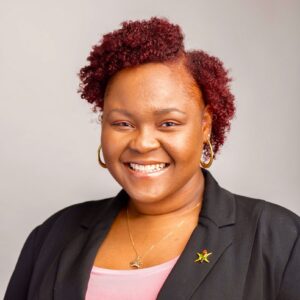 Researchers use National Science Foundation grant to analyze how students cope with sudden shift to online learning
Researchers use National Science Foundation grant to analyze how students cope with sudden shift to online learning
When college campus across the nation were forced to close suddenly to help stop the spread of COVID-19, students had to quickly shift from face-to-face classes to online instruction. While this transition has not been easy for any instructor or student, the shift to online learning has been especially difficult for underrepresented students in STEM courses, particularly engineering, which features a strong practical and laboratory component.
Researchers in the University of Georgia College of Engineering have received a National Science Foundation (NSF) RAPID grant to study how the pandemic is impacting students historically underrepresented in engineering. The NSF’s Rapid Response Research (RAPID) program funds proposals that require quick-response research on disasters and unanticipated events. The UGA study is designed to catalog and analyze information that colleges and universities can use to improve students’ experiences while ensuring minority students are not left out of decisions made with the majority in mind.

Racheida Lewis
“All over social media, I have witnessed underrepresented students talk about stress as it relates to the transition to online learning – particularly stress around lack of flexibility, having to move home, the refund process, and the struggle with completing online instruction at home,” said Racheida Lewis, an assistant professor and the project’s principal investigator. “When you couple all these things with the natural rigor of engineering courses and labs, it’s important that the high-level decisions being made are in the best interest of all students.”
Lewis said the pandemic has highlighted the digital divide in communities populated by underrepresented students such as urban and rural areas. These communities often lack access to high-speed internet service and the devices needed by students to complete assignments.
In addition, the Centers for Disease Control and Prevention notes current data on COVID-19 suggest a disproportionate burden of illness and death among racial and ethnic minority groups.
“Although the likelihood of a healthy student experiencing severe complications with the virus seems to be low, their families may not be so lucky,” said Lewis. “Such traumatic events occurring during the last half of the semester may have taken an additional toll on students during this transition.”
In addition to Lewis, the research team includes Nicola Sochacka, a research scientist and an associate director of the Engineering Education Transformations Institute in the UGA College of Engineering; and Trina Fletcher, an assistant professor of engineering education at Florida International University.
The team will use an online data collection platform, SenseMaker, to collect short narratives from underrepresented engineering students. Using these narratives and a few follow-up questions, the researchers will develop insights into how students are coping with the COVID-19 crisis and the transition to online learning.
“Think about a Facebook post or a Tweet: you share your thoughts on something but then get to take it a bit further and tell the research team exactly what your story means – not what we interpret it to be,” said Lewis.
The researchers will analyze the data for patterns that can help colleges and universities understand the challenges faced by underrepresented students as they craft responses to the pandemic. This data may also help institutions develop empirically-based policies as they continue to navigate the current crisis and reduce the disruption of sudden instructional transitions in the future.
In addition, Lewis believes the study will help institutions understand that diversity and inclusion efforts must be considered in virtual learning environments and activities.
“I hope that these findings will encourage engineering programs to evaluate how their diversity and inclusion initiatives support students off-campus,” said Lewis. “These initiatives are often centered around recruiting students into programs and can sometimes lack the support for these students once they’re in. Now that they’re off-campus, this support is needed more than ever.”
By Mike Wooten


